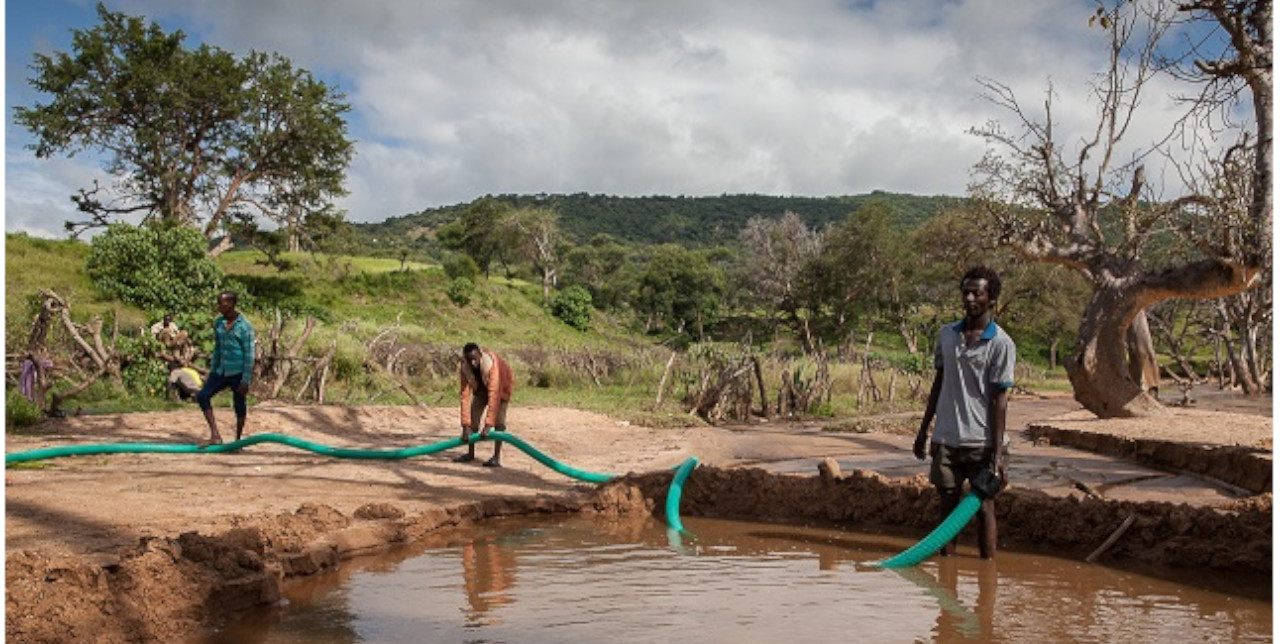03-07-2019 | di COOPI
Ethiopia: new tests on solar pumps
Pumping tests were carried out to develop solar pumping systems at Busidima (Ada'ar) and Kadabura (Dewe), in May and June 2019.
About 10,650 people, including men, women and children from the areas 1, 2 and 5 of the woredas in Afar, will benefit from the rehabilitation of water schemes with solar pumps and will be able to access clean and uncontaminated water.
Thanks to the "Integrated approach to strengthen the resilience of drought-affected populations in zones 1, 2 and 5 of the Afar Region" project, funded by the Italian Agency for Development Cooperation (AICS), we are continuing to use solar technology and focus on sustainability, both on an environmental and economic standpoint.
In the woreda of Meghale, we are also rehabilitating the collection and distribution system of the water source Adu Kebele, in the village of Ela Fankuli.
Situated at 1.5 km from the village, the water spring is the only source of water used by the local and neighbouring communities and for farming. Although it has a constant flow of water, its quality is extremely poor, due to exposure to pollution sources.
Given the strategic location of the spring, we are implementing a "gravity system", which will allow the water to be channelled from the upstream spring to four downstream water collection points, i.e. two public collection points for the village, one for the school and another for the health centre.
Other activities related to the water source rehabilitation, such as the construction of a reinforced concrete storage tank and the installation of 1.5 km of polyethylene piping line, are under way.
As part of the Water and Sanitation cluster, we are also focusing on the dissemination of hygiene best practices in schools: an expert in the field has provided a two-day training to 20 primary school teachers in the province of Meghale.
As Fabio Castronovo, COOPI Project Leader in Afar, points out, "training focused on current food hygiene rules and how to prevent the most common infectious diseases, such as diarrhoea or intestinal parasites. A great number of teachers took part in the training and good changes are to improve and disseminate hygiene practices in schools and in the community.”
In the coming months, aquaculture, beekeeping and waste management activities will also be implemented, with a view to improving living conditions and strengthening the resilience of the most vulnerable communities affected by extreme climatic phenomena in the Afar region, while strengthening basic services - water and food security - the management of natural resources and environmental protection, and restoring the livelihoods of pastoral communities.
Photo credits: Coralie Maneri




 Ethiopia
Ethiopia